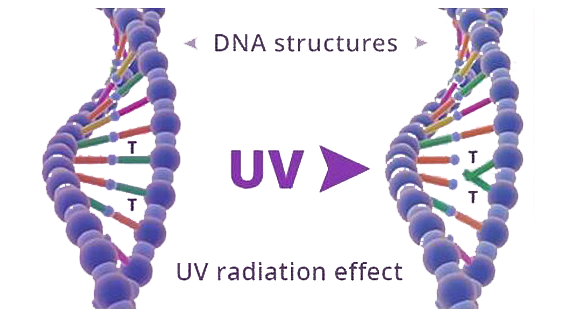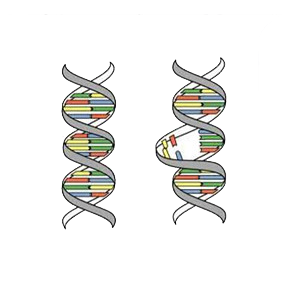|
|



|
Indoor Air Quality
UV-C Light, Indoor Air Purification and protection from Microbes, Bacteria and Virus
Our company offers methodical approach to indoor air quality. From air filtration, distribution, purification and huidity controll.
We first check your system to make sure it is tight and there are no air leaks. We then make sure that you have the correct insulation
value for your duct work. We then make the proper recomendations to give you the best air quality possible. Your air conditioner with the
right filters and accessories such as Ultra Violet air purification ( UV germicidal light ), can become a powerful air filtration and purification system. You Breath in over 11,000
liters of air per day, why not make sure its pure and clean.
We Recommend 5" thick Pleated Filters.
We offer the REME HALO UV Air Purification System by RGF.
The REME HALO has been tested and proved to kill many germs, bacteria and viruses such as H1N1, Bird Flu, Strep, MRSA, Tuberculosis, Legionella.

We Recommend R-8 insulation value on duct work.
- Humidity Controll VIA Fresh Air Exchanger
The Ultra Aire fresh air exchanger can remove up to 90 pints of water per day to lower the humidity of the air in your home.
An Introduction to UV-C LED Lighting for Germicidal, Sterilization and Disinfection Applications
Ultraviolet lights have shown great promise in providing effective sterilization and disinfection of surfaces. Not all UV lights are effective for sterilization and disinfection purposes, however. In this article, we'll go over the various types of UV lamps as well as technologies and wavelength ranges that do and do not effectively work for UVGI (ultraviolet germicidal irradiance).
Different Types of Ultraviolet
Just like visible light, ultraviolet is made up of a wide range of wavelengths on a spectrum, and this requires us to be more specific when we discuss different ultraviolet lights. The specification we need to look at is the wavelength, measured in nanometers (nm). Ultraviolet wavelengths can range from 100 nm to 400 nm, which is almost as wide as the entire visible spectrum (400 nm to 800 nm). The same way there are many types of visible light (630 nm = red, 530 nm = green, 460 nm = blue, etc) that depend on their wavelengths, there are many types of ultraviolet that have different characteristics depending on their wavelength.

Ultraviolet energy is categorized by wavelength, and is broken down into the following types:
- UV-A: 315-400 nm
- UV-B: 280-315 nm
- UV-C: 100-280 nm
Perhaps the most common type of ultraviolet lamp you may come across is one that emits in the UV-A region of the spectrum. UV-A radiation is invisible until certain materials fluoresce, or "glow." Many fluorescent paints, minerals, and "blacklight" effect products are sensitive to UV-A wavelength energy. UV-A radiation is the weakest form of ultraviolet energy, but caution must be taken as it is nonetheless harmful under excessive exposure, especially as it is invisible.
Many UV LED products emit in the UV-A range, and are commonly referred to as blacklights. They are used across a variety of applications such as fluorescence, curing and blacklight artwork. Although these products are certainly considered ultraviolet, their wavelengths are far too long at 360 nanometers or higher. These wavelengths, have not been shown to be effective for germicidal or sterilization applications and therefore should not be used.
UV-B radiation has a shorter wavelength than UV-A radiation, and is generally stronger than UV-A. While both UV-A and UV-B are present in natural sunlight, UV-B is the primary wavelength that causes sunburn and skin cancer. Despite its stronger energy potential, UV-B's ability to sterilize and inactivate viruses, bacteria and molds has been shown to be quite limited.
Instead, to successfully implement an ultraviolet sterilization system using LEDs, you will need to specifically look for UV LEDs that emit in the UV-C portion of the spectrum. This is due to the way in which the DNA and RNA molecules react to these wavelengths, rendering the pathogens sterile and unable to reproduce. Therefore, you will want to have a UV light which specifically has a UV-C wavelength calibrated for germicidal applications.
Why Does it Have to be UV-C?
The reason it is absolutely critical that the correct wavelength of ultraviolet is used for germicidal applications is due to the mechanism through which the pathogen becomes deactivated. DNA and RNA are the building blocks of life, including microscopic organisms and pathogens such as viruses, bacteria and molds. Without this genetic material, pathogens are unable to reproduce, eventually leading to the death of an infectious colony.
DNA molecules are made up of nucleic acids called adenine (A), cytosine (C), guanine (G), and thymine (T). (Uracil replaces thymine in RNA). Robust and repeated research has found that when thymine is exposed to specific ultraviolet wavelengths, the molecule absorbs the ultraviolet energy and undergoes a chemical bond change. This change in chemical bond configuration results in an alteration of the DNA sequence, which prevents the pathogen from reproducing.
Thymine (and Uracil) have an absorption spectra that are especially sensitive at wavelengths at or near 265 nanometers. At wavelengths longer than 300 nanometers, there is almost no absorption. The absorption spectra are shown in the shaded white curves in the chart below.

As the spectral chart shows, thymine and uracil are not reactive to UV-A wavelengths, and most UV-B wavelengths except those at or below 300 nanometers.
Are we certain that longer wavelengths such as UV-A do not work?
Because UV-A and longer wavelength UV products are generally more available, many people will ask if their fluorescent blacklight will work for germicidal applications. According to UVGI theory, these longer wavelength products will fail to cause a breakdown in the DNA sequence, and will not result in effective sterilization.
Research has shown that there are other photochemical processes that may occur with UV-A wavelength exposure, such as the creation of free radicals, which can contribute to inactivation. Other mechanisms, such as heat generation upon exposure, can also be potential avenues through which non UV-C radiation can result in disinfection. In general, however, research has shown that UV-C is the only wavelength band which can reliably and consistently inactivate a wide range of viruses, bacteria and molds.
Chart showing DNA structure disruption before & After UV exposure

Principles of UVC Disinfection
UV-C Exposure is a proven disinfection technique validated
through a century of scientific experiments and actual medical
practice.
Ultraviolet light with a wavelength of less than <300nm
carry enough energy to cause a break in the chemical bonds
in the DNA and RNA basesof Thymine and Uracil. This disrupts
the replication process and rendersthe organism harmless. �Since the overwhelming majority of the pathogens on earth
require DNA or RNA to replicate, UV-C is a disinfection
technique that is universally effective against Bacteria, Virus,
Mold Spores and evensmall parasites.

UV-C disinfection is fast acting, does not leave behind toxic
residue, foulsmellor bad taste and ther is no worries about drug
resistance developing.
|
We sell UV Air Purifiers in New Orleans, Mandeville, Slidell, LA and Surrounding Areas
UV Air Purifiers & Ultra Violet Air Purification Services In New Orleans, Mandeville, Slidell, Sun, Bush, Folsom, Gretna, Harvey, Elmwood, Goodbee, Hammond, Harahan, Lacombe, Loranger,
Metairie, St. Rose, Chalmette, Covington, Eden Isle, Jefferson, Terrytown, Timberlane, Pearl River, Ponchatoula, River Ridge, Madisonville, Old Metairie, Abita Springs, Woodmere, Kenner, Louisiana,
and Surrounding Areas

|
|

